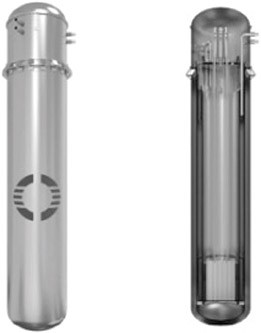monitor, detect, and prevent future cyber threats. In addition, the Board, or a duly authorized committee thereof, will annually review our risk profile with respect to cybersecurity matters. To the extent that any disruption or security breach were to result in a loss of, or damage to, our data or applications, or inappropriate disclosure of confidential or proprietary information, we could incur liability and reputational damage and the further development and commercialization of our products could be delayed.
Furthermore, significant disruptions of our internal information technology systems or security breaches could result in the loss, misappropriation, and/or unauthorized access, use, or disclosure of, or the prevention of access to, confidential information (including, but not limited to, intellectual property, proprietary business information, export-controlled information, and personal information), which could result in financial, legal, business, and reputational harm to us. For example, any such event that leads to unauthorized access, use, or disclosure of personal information, including personal information related to our employees, could harm our reputation directly, compel us to comply with federal and/or state breach notification laws and foreign law equivalents, subject us to mandatory corrective action, and otherwise subject us to liability under laws and regulations that protect the privacy and security of personal information, which could result in significant legal and financial exposure and reputational damages that could potentially have an adverse effect on our business.
Macroeconomic Risks Relating to Our Business
We may experience a disproportionately larger impact from inflation and rising costs.
Recently, inflation has increased to its highest level in decades. Inflation has resulted in, and may continue to result in, higher interest rates and capital costs, higher shipping costs, higher material costs, supply shortages, increased costs of labor and other similar effects. Although the impact of material cost, labor, or other inflationary or economically driven factors will impact the entire nuclear and energy transition industry (including renewable sources of electricity, like solar and wind), the relative impact will not be the same across the industry, and the particular effects within the industry will depend on a number of factors, including material use, technology, design, structure of supply agreements, project management and others, which could result in significant changes to the competitiveness of our technology and our ability to construct and operate our fuel fabrication facilities, fuel recycling facilities, and powerhouses, which could have a material adverse effect on our business, financial condition and results of operations.
Uncertain global macroeconomic and political conditions could materially adversely affect our business prospects, financial condition, results of operations and cash flows.
Our results of operations could be materially affected by economic and political conditions in the United States and internationally, including inflation, deflation, interest rates, availability of capital, energy and commodity prices, trade laws and the effects of governmental initiatives to manage economic conditions.
Potential customers may delay or decrease spending on our powerhouses and related services as their business and budgets are impacted by economic conditions. The inability of potential customers to pay us for our powerhouses and related services may adversely affect our earnings and cash flows.
The ongoing military conflict in Ukraine has escalated tensions between the United States, and its North Atlantic Treaty Organization (“NATO”) allies on one hand, and Russia on the other. The United States and other NATO member states, as well as some non-member states, have imposed sanctions against Russia and certain Russian banks, enterprises, and individuals. Although there are currently no sanctions on Russian companies supplying HALEU, sourcing HALEU from Russia presents a potential reputational risk and supply chain risk if sanctions are imposed at a later time. These circumstances have impacted the commercial availability of HALEU and increasing the cost of uranium enrichment services to produce HALEU, and any future additional sanctions and any resulting conflict between Russia, the United States and NATO countries could potentially increase the adverse impact on the price of enrichment services and on our future operations.
Further, the ongoing military conflict resulting sanctions and related countermeasures by NATO states, the United States and other countries have led to, and are likely to lead to additional, market disruptions, including significant volatility in commodity prices, credit, and capital markets, as well as supply chain interruptions for equipment, which could have an adverse impact on our operations and financial performance. Global supply chain disruptions have increasingly affected both the availability and cost of materials, component manufacturing and deliveries. Disruptions such as military conflicts, sanctions, and other countermeasures between nations, as well as any escalation in tension between nations, may result in delays in equipment deliveries and cost escalations that could adversely affect our business prospects, financial condition, results of operations and cash flows.



